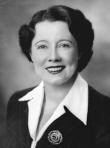'Filmed against the lush, tropical background of the Lamington Plateau it tells the story of an Australia many have never seen ... of Australians heard about but never met. This is the story of pioneers with adventure in their blood and their incessant battle against nature.
'Matthew O'Riordan had five sons–Shane, Barney, Luke, Terry and Mickey. The sons grew up. The farm in the valley is too small to hold them, so Matthew calls a conference and suggests that the boys take up land is Quensland, [sic] where there is unlimited opportunity and plenty of land.
'Matthew informs them of the hardships they will have to endure but fighting is a thing they understand, so they set off.
'After the decision is made the film goes on to describe their battle against what appears to be overwhelming odds. It depicts their passions, their dreams, their hopes and finally their victory.'
Source:
'Odeon', Goulburn Evening Post, 20 February 1950, p.3.
 6941649498065397521.jpg
6941649498065397521.jpg